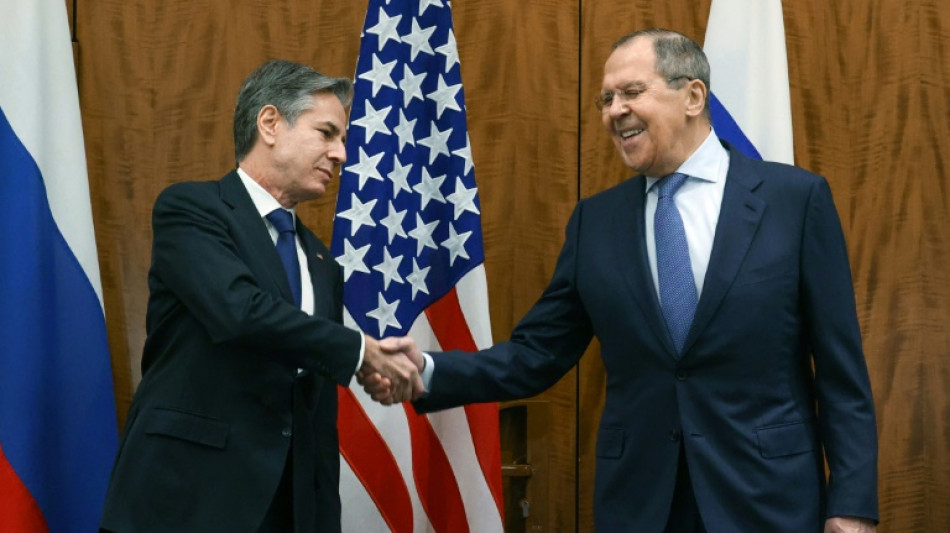
-
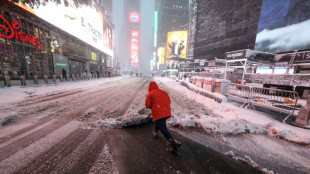 Snowstorm blankets US northeast as New York sees travel ban
Snowstorm blankets US northeast as New York sees travel ban
-
Healthcare crisis looms over Greenland's isolated villages
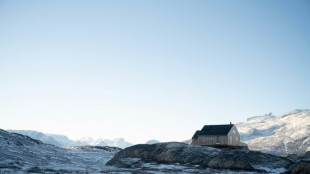
-
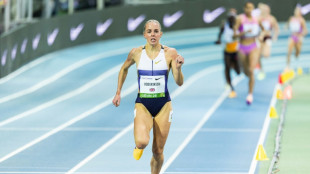 Hodgkinson says breaking 800m record would put her among athletics' greatest
Hodgkinson says breaking 800m record would put her among athletics' greatest
-
Two Russian security personnel were on board France-seized tanker: sources
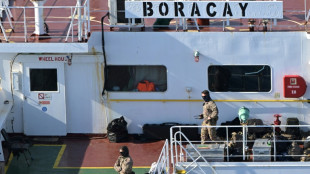
-
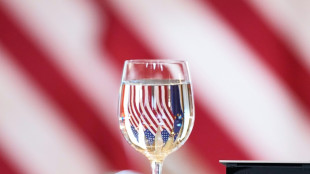 EU puts US trade deal on ice after Supreme Court ruling
EU puts US trade deal on ice after Supreme Court ruling
-
Hetmyer blasts 85 as West Indies pile up 254-6 against Zimbabwe
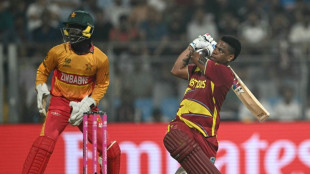
-
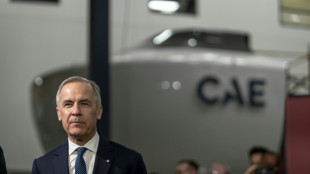 Canada PM heads to Asia seeking new trade partners as US ties fray
Canada PM heads to Asia seeking new trade partners as US ties fray
-
South Africa accepts Trump's new US ambassador
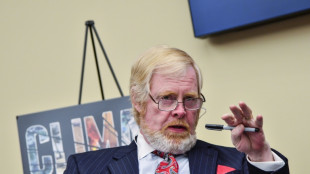
-
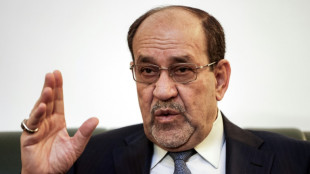 Iraq's Maliki defends PM candidacy, seeks to reassure US
Iraq's Maliki defends PM candidacy, seeks to reassure US
-
UEFA suspend Benfica's Prestianni after alleged racist abuse
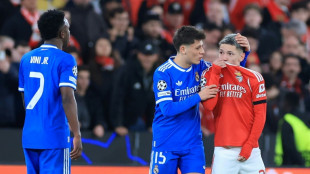
-
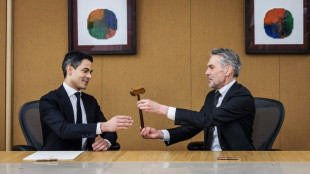 Jetten sworn in as youngest-ever Dutch PM
Jetten sworn in as youngest-ever Dutch PM
-
Italy's Enel to invest 20bn euros in renewables by 2028
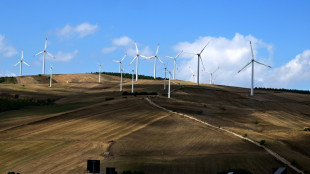
-
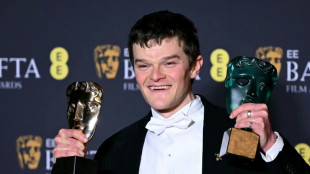 BBC apologises for 'involuntary' Tourette's racial slur during BAFTA awards
BBC apologises for 'involuntary' Tourette's racial slur during BAFTA awards
-
Kristen Bell returns to host glitzy Actor Awards in Hollywood
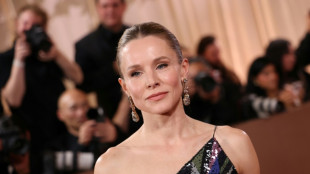
-
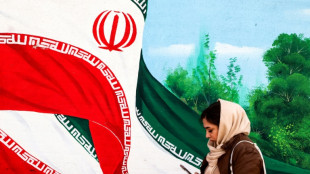 Iran says would respond 'ferociously' to any US attack
Iran says would respond 'ferociously' to any US attack
-
Venezuelan foreign minister demands 'immediate release' of Maduro
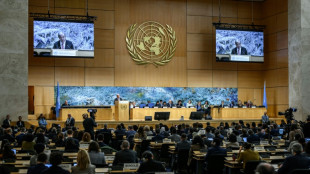
-
 Dane Vingegaard to start season at Paris-Nice in March
Dane Vingegaard to start season at Paris-Nice in March
-
Australia PM backs removing UK's Andrew from line of succession
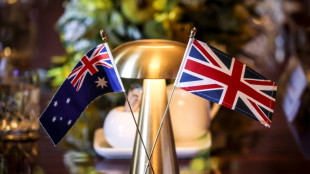
-
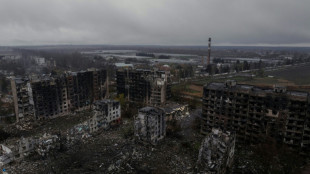 Where do Ukraine and Russia stand after four years of war?
Where do Ukraine and Russia stand after four years of war?
-
Police investigating racist abuse of Premier League quartet
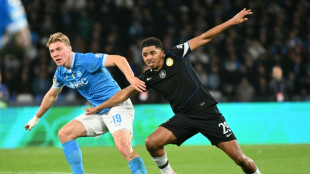
-
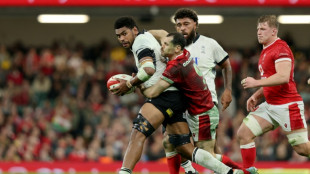 Fiji to start Nations Championship at 'home' to Wales in Cardiff
Fiji to start Nations Championship at 'home' to Wales in Cardiff
-
EU lawmakers to put US trade deal on hold after Supreme Court ruling
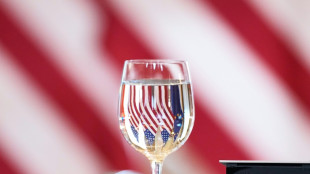
-
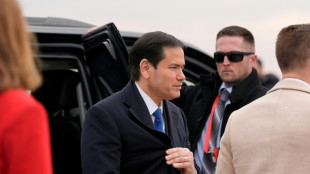 Rubio to attend Caribbean summit as US presses Venezuela, Cuba
Rubio to attend Caribbean summit as US presses Venezuela, Cuba
-
'Ugly' England aim to spin their way to T20 World Cup semi-finals
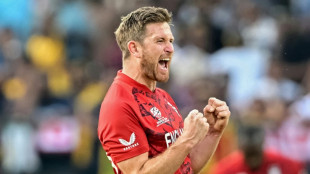
-
 Nigeria paid Boko Haram ransom for kidnapped pupils: intel sources
Nigeria paid Boko Haram ransom for kidnapped pupils: intel sources
-
Tudor says Tottenham can still beat the drop despite Arsenal loss
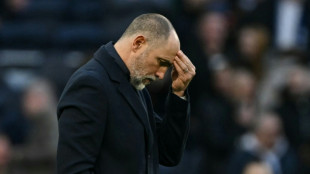
-
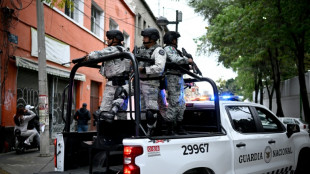 Violence sweeps Mexico after most-wanted drug cartel leader killed
Violence sweeps Mexico after most-wanted drug cartel leader killed
-
France giant Meafou capable of being 'world's best' lock
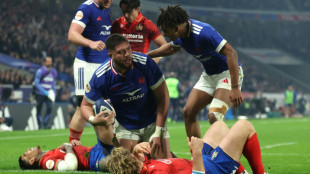
-
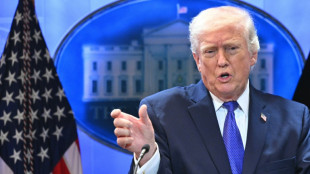 Stocks diverge, dollar down over Trump tariffs uncertainty
Stocks diverge, dollar down over Trump tariffs uncertainty
-
World champions South Africa announce eight home Tests for 2026/27
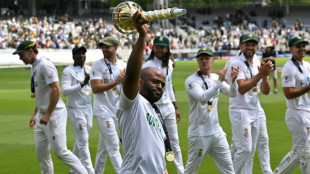
-
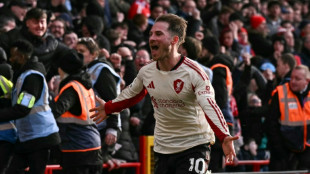 Liverpool boss Slot encouraged by Mac Allister's return to form
Liverpool boss Slot encouraged by Mac Allister's return to form
-
India replaces British architect statue with independence hero
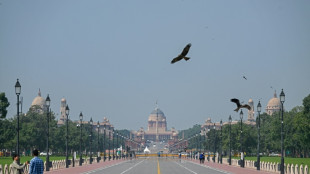
-
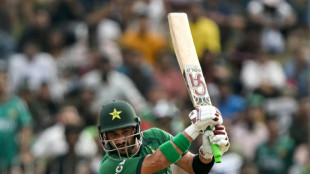 Pakistan warn England's flaky batting to expect a trial by spin
Pakistan warn England's flaky batting to expect a trial by spin
-
Philippines' Duterte authorised murders, ICC told as hearings open
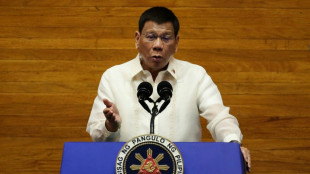
-
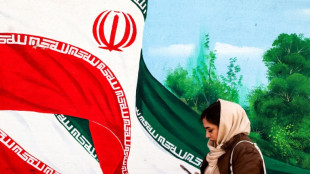 Iran says would respond 'ferociously' to any US attack, even limited strikes
Iran says would respond 'ferociously' to any US attack, even limited strikes
-
New Dutch government sworn in under centrist Jetten
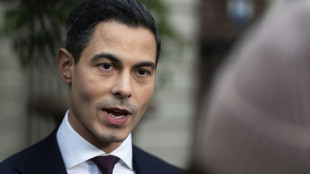
-
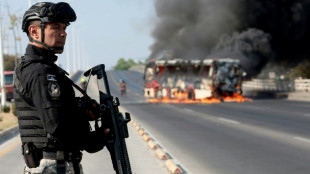 What the future holds for the CJNG cartel after leader killed
What the future holds for the CJNG cartel after leader killed
-
ICC kicks off pre-trial hearing over Philippines' Duterte
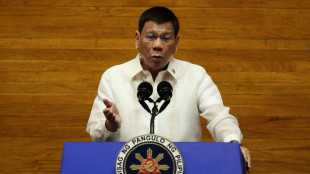
-
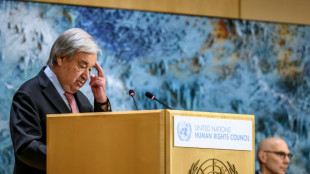 UN chief decries global rise of 'rule of force'
UN chief decries global rise of 'rule of force'
-
Nemesio Oseguera, the brutal Mexican drug lord known as 'El Mencho'
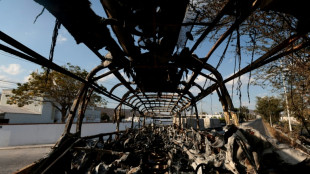
-
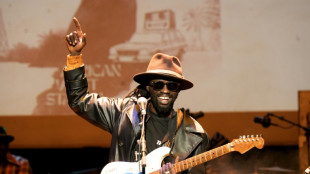 Senegal's Sahad, radiant champion of 'musical pan-Africanism'
Senegal's Sahad, radiant champion of 'musical pan-Africanism'
-
New York orders citywide travel ban as major storm hits US
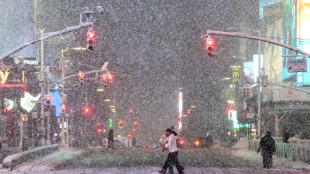
-
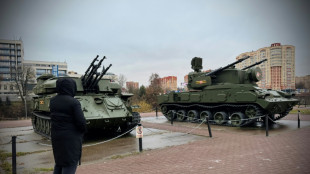 'Considered a traitor': Life of an anti-war Ukrainian in Russia
'Considered a traitor': Life of an anti-war Ukrainian in Russia
-
South Korea and Brazil sign deals on K-beauty, trade
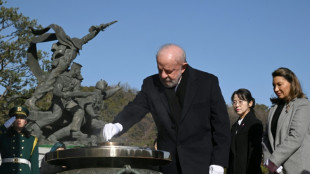
-
 Zimbabwe farmers seek US help over long-promised payouts
Zimbabwe farmers seek US help over long-promised payouts
-
Hong Kong appeals court upholds jailing of 12 democracy campaigners
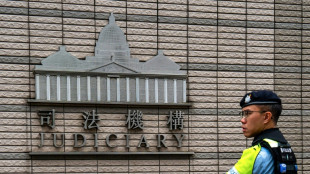
-
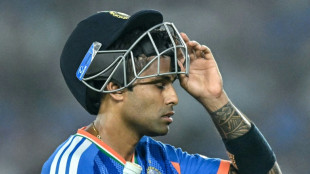 India battle for World Cup survival after 'messing up on grand scale'
India battle for World Cup survival after 'messing up on grand scale'
-
'I will go': Bengalis in Pakistan hope for family reunions
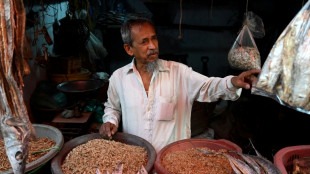
-
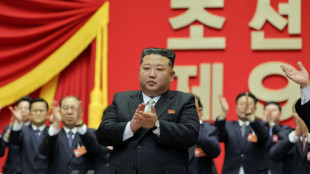 North Korea touts nuclear advances as Kim re-chosen to lead ruling party
North Korea touts nuclear advances as Kim re-chosen to lead ruling party
-
South Korea protests 'Victory' banner hung from Russian embassy
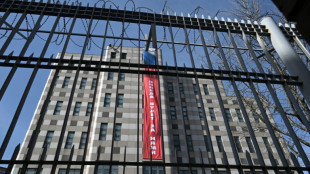

Cold War flashbacks in Russia-US talks in Geneva
Geneva, the neutral turf that was once host to so much Cold War bargaining, is again welcoming Russian and US officials to discuss missiles, nuclear arms and spheres of influence on the eve of a possible conflagration.
There is a heavy whiff of the 20th-century East-West power struggles in the Swiss capital, a flashback to the tense period between World War II and the Soviet Union's collapse in 1991, when the fate of the world often appeared to hang in the balance.
The two rival camps are beginning to openly make the comparison themselves, even if observers note significant differences.
"What we're having now we have is kind of a remake of the Cold War, Cold War 2.0," Dmitri Polyansky, the Russian deputy ambassador to the United Nations, said last month, putting the blame on the United States.
In Berlin, the city once split by a wall that became the emblem of the Cold War, US Secretary of State Antony Blinken warned Thursday that any Russian invasion of Ukraine, which Westerners fear could happen at any moment, would bring the world back to a time "when this continent, and this city, were divided in two... with the threat of all-out war hanging over everyone's heads."
- 'Brinkmanship' -
The similarities are striking.
Firstly, the geographical split is identical, with Moscow facing down the West.
Military, too, there is once again the risk that a local conflict fought by proxy forces could degenerate into a much larger and more direct confrontation of great powers.
And as in the heyday of the Cold War, the two powers have rallied their allies and defended their spheres of influence in a classic display of realpolitik bloc logic.
While the Americans suspect the Russians of wanting to use Belarus as a rear base for a potential offensive in Ukraine, NATO, the transatlantic alliance that the United States recently tried to redirect towards China, has rediscovered its raison d'être from the time of its founding in 1949, namely to defend non-Soviet Europe from a possible attack by Moscow.
Russian President Vladimir Putin, a former KGB officer, is practicing "Cold War-style brinksmanship, threats and intimidation intended to burnish Putin's image as a strongman," Sarah Kreps, a professor at Cornell University, told AFP.
From the location of the talks to the vocabulary used and the issues on the table, it all has a vintage feel as the two sides haggle over the deployment of missiles and troops at the gates of the opposing bloc.
- Less ideology -
However, John Bolton, who served as national security advisor to former US president Donald Trump, noted that the current face-off lacks the ideological ingredient of Communism versus liberal democracy that "shaped the Cold War."
"What we're looking at now is much more a kind of typical nineteenth-century power-politics confrontation, and I don't think it's infused by ideology,” he said.
"The immediate issue that we face is not just Ukraine, but is Putin's effort to either reassert Russian control over the former Soviet Union or at a very, very, very bare minimum, establish Russian hegemony over it,” he said.
For Bolton, the current crisis is the culmination of a long drift borne of the blindness of Western leaders and thinkers who were lulled in the 1990s by the illusion of a world without major conflict and did not see that Moscow had never really accepted the dissolution of its empire. That was something Putin referred to in 2005 as the "greatest disaster" of the last century.
"Putin is both patient and agile," said Bolton, adding that the process has "not not been exactly fast, but it's been consistent," referring to the Russian military intervention in Georgia in 2008 then the annexation of Ukrainian Crimea in 2014.
If crisis erupts today, it is also because the US has partly withdrawn from the world stage -- President Joe Biden has made it clear that he has no intention of directly involving the United States in a new conflict.
"Clearly in Putin's mind, Russia is destined to be a great power” Bolton said, and the Russian leader likely resents that Beijing has replaced it in the role of Washington's number one rival.
Cold War or not, the strategic stakes have hardly changed. At the time, "there were nuclear weapons -- a lot of them -- but deterrence worked. Neither side was going to provoke a nuclear war because no one would win that war," said Kreps.
"Very little about that dynamic has changed other than the individuals involved, but the most important thing -- the strategic calculus -- remains the same.”
She warned that "we will see these types of crises come and go," but in the future, as in the Cold War of the past, "deterrence will keep a lid on major escalatory action.”
M.Qasim--SF-PST



